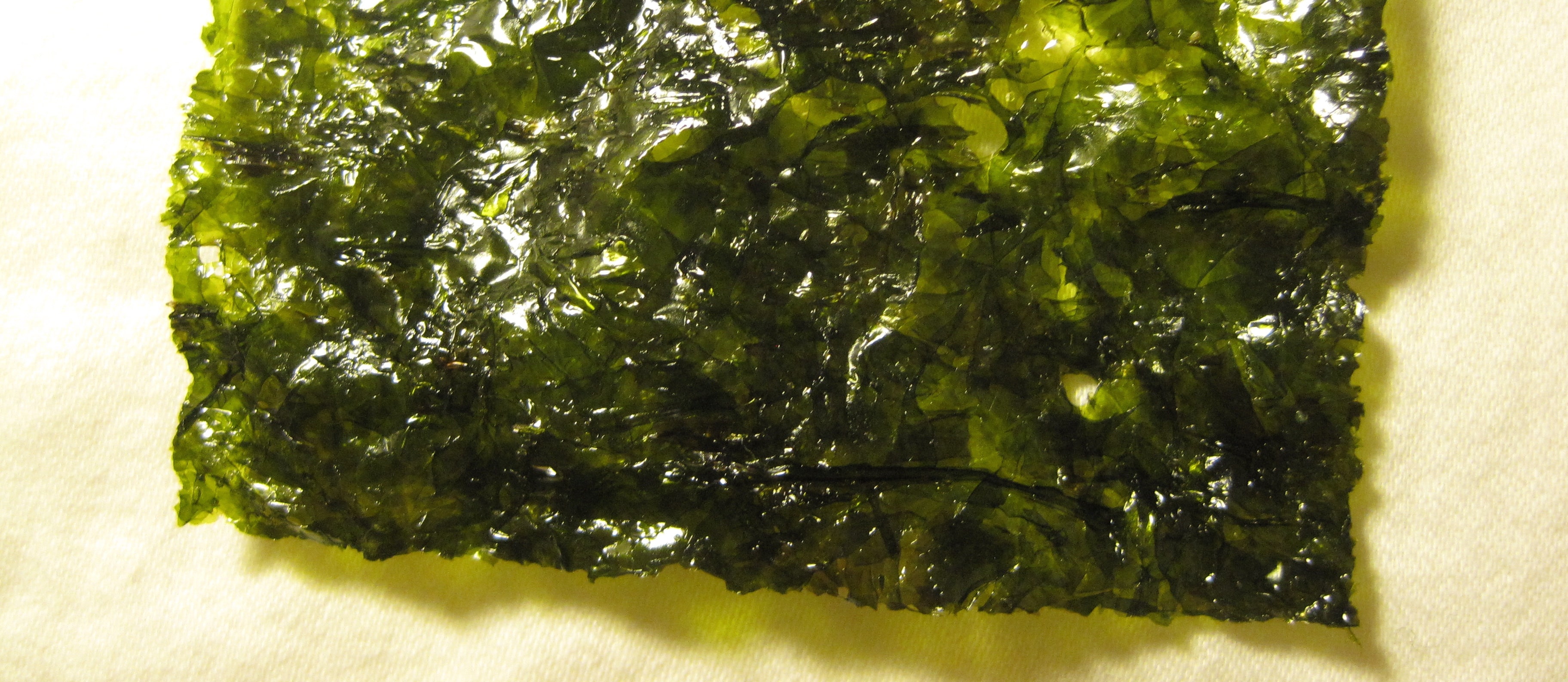Sushi lovers, rejoice. Nori seaweed may favorably alter estrogen metabolism by modulating women’s gut flora, resulting in decreased breast cancer risk.
As traditional East Asian diets have westernized, breast cancer rates have risen. Some researchers have linked this to a quadrupling of animal product consumption. In my video Which Seaweed Is Most Protective Against Breast Cancer, you can see the breast cancer rate of Japanese women living in Japan. Within 10 years of immigrating to the United States, their risk increases, and if they hang around long enough, their risk goes up even more, although it is still somewhat lower than the U.S. national average. This may be because of some of the dietary habits they carry with them—soy and green tea consumption, perhaps eating more mushrooms and seaweed.
We’ve known for over a decade that in vitro (in a Petri dish) seaweed broth is effective at clearing cancer cells. In the video, you can see three different types of human breast cancer exposed to either a widely used chemotherapy drug or a sea vegetable. The seaweed worked better. And unlike the chemo, it didn’t hurt normal, non-cancerous breast cells. What about outside of the test tube, in people?
Well, a population study comparing women with breast cancer to women without found that consuming a single sheet of nori a day may cut a woman’s odds of breast cancer in half. We think it’s because seaweed favorably alters estrogen metabolism, likely due to modulating women’s gut bacteria. The more seaweed we eat, the less estrogen we have in our system, which may lower breast cancer risk.
The breast cancer protection may be because of all the fiber in sea vegetables, or because seaweed may block the enzyme that undermines our body’s attempt to flush out excess hormones. Or seaweed may somehow interfere with estrogen binding to estrogen receptors. Whatever the cause, to effectively lower their estrogen levels, Asian women may be able to get away with about one sheet of nori a day, but American women are physically so much larger that it may take closer to two. There are lots of yummy seaweed snacks out there to make it a tasty experience—just try to get some low-fat, low-sodium ones. They’re just like kale chips, munchies made out of dark green leafy vegetables—can’t beat that!
For more on lowering breast cancer through diet:
- Fiber vs. Breast Cancer
- Breast Cancer vs. Mushrooms
- Cancer, Interrupted: Green Tea
- The Answer to the Pritikin Puzzle
- Pollutants in Californian Breast Tissue
- Relieving Yourself of Excess Estrogen
- Flaxseeds & Breast Cancer Prevention
- Broccoli Versus Breast Cancer Stem Cells
- PhIP: The Three Strikes Breast Carcinogen
- Breast Cancer and Alcohol: How Much Is Safe?
- Tree Nuts or Peanuts for Breast Cancer Prevention?
The seaweed used fresh in seaweed salads, wakame, unfortunately did not appear to reduce breast cancer risk. Wakame consumption has, however, been found to lower blood pressure in hypertensives (people with high blood pressure). Just two teaspoons of seaweed salad a day for a month dropped people’s blood pressure 14 points, and two months of wakame was associated with up to a two inch skinnier waistline.
As I’ve mentioned before, I’d recommend avoiding hijike, which tends to have too much arsenic, and kelp, which tends to have too much iodine (see Too Much Iodine Can Be as Bad as Too Little). In fact, too much seaweed of any type may actually increase our risk for thyroid cancer because of the amount of iodine we’d be taking in, but there does not appear to be any increased risk at the levels of consumption I’m talking about, like a sheet of nori every day. And a study of seaweed eaters in California actually found decreased risk, but, again, we’re talking a modest level of intake.
I’ve frequently talked about the benefits of dietary diversity, eating different families of fruits and vegetables, eating different parts of individual plants—such as beets and beet greens. If we just stick to land plants, though, we’re missing out on all the plants from the other 70% of planet earth. Sea vegetables have phytonutrients found nowhere else, special types of fiber, and unique carotenoids and polysaccharides, and various polyphenol defense compounds, each of which may have anti-cancer properties. I encourage everyone to try experimenting until you find a sea vegetable you like, even if that means just sprinkling some powdered dulse on your food. More on the importance of dietary diversity in Garden Variety Anti-Inflammation, Apples and Oranges: Dietary Diversity, and Constructing a Cognitive Portfolio.
For more on some of the other protective dietary components in the diets of Japanese women, check out Why Do Asian Women Have Less Breast Cancer? and Breast Cancer Survival and Soy.
-Michael Greger, M.D.
PS: If you haven’t yet, you can subscribe to my videos for free by clicking here and watch my full 2012 – 2015 presentations Uprooting the Leading Causes of Death, More than an Apple a Day, From Table to Able, and Food as Medicine.
